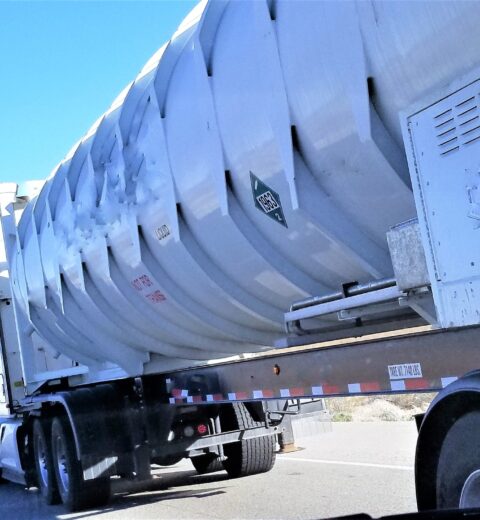Transitioning from General Freight to Tanker Jobs
Are you considering a career shift from general freight to tanker trucking but unsure of what to expect? Transitioning to tanker trucking can be a lucrative and rewarding move, offering unique challenges and benefits. This comprehensive guide breaks down everything you need to know—from qualifications to safety tips—to help you make a smooth and successful transition. If you’re ready to elevate your career and take on a specialized role in the trucking industry, read on! Don’t forget to explore reputable training programs and job listings to jump-start your journey.

Understanding the Differences Between General Freight and Tanker Jobs
Tanker trucking differs significantly from hauling general freight. While general freight often involves boxed or palletized goods, tankers transport liquids such as fuel, chemicals, and food-grade materials. These liquid loads require specialized handling due to their movement within the tank, which can affect the truck’s stability. Additionally, tanker trucking often comes with fewer stops but requires more precise driving to navigate sudden shifts in weight. By understanding these key differences, you can better prepare for the unique demands of tanker driving.
Qualifications and Endorsements Needed for Tanker Jobs
To make the shift from general freight to tanker trucking, you’ll need additional certifications. A valid CDL with a tanker endorsement (N) is a must, and depending on the cargo, you may also need a hazardous materials (H) endorsement. These endorsements ensure that drivers understand the complexities of handling liquid cargo safely and legally. Obtaining these qualifications involves studying regulations, passing written exams, and, in some cases, practical tests. Investing time in acquiring the proper endorsements can open the door to higher-paying opportunities within the industry.
Training and Skill Development
Even experienced truckers benefit from specialized training when transitioning to tanker trucking. Many companies offer comprehensive orientation programs that cover everything from loading and unloading procedures to emergency protocols. Tanker trucks have different braking dynamics due to the liquid’s motion, so drivers must learn how to adjust their driving accordingly. Practice sessions with an experienced trainer can help you build confidence in operating tanker equipment and navigating challenging road conditions.
Navigating Safety and Regulatory Requirements
Safety is paramount in tanker trucking. The Federal Motor Carrier Safety Administration (FMCSA) has strict guidelines for transporting liquids, especially hazardous materials. Drivers must adhere to weight limits, follow proper inspection protocols, and comply with hazmat regulations when applicable. Pre-trip and post-trip inspections take on even greater importance, as any mechanical issue or improper sealing can lead to spills or accidents. By prioritizing safety measures and remaining informed about regulations, you’ll be well-equipped to handle the responsibility that comes with tanker driving.
Managing the Challenges of Liquid Surge and Slosh
One of the most notable differences between general freight and tanker jobs is dealing with liquid surge and slosh. Liquid cargo can shift unexpectedly, causing what is known as “surge” during acceleration and braking or “slosh” during turns. These movements can affect your control over the vehicle if not properly managed. To minimize these effects, tanker drivers often use gradual acceleration and controlled braking, as well as proper following distances. By mastering these techniques, you can maintain stability and prevent accidents on the road.
Benefits of Transitioning to Tanker Trucking
Switching to tanker trucking comes with several advantages. Tanker jobs often pay higher wages due to the specialized skills required and the risks involved. In addition, many tanker positions offer more predictable schedules and routes, allowing for a better work-life balance. Some tanker companies also provide perks like hazard pay, bonuses, and comprehensive benefits packages. For drivers looking to advance their careers and increase their earning potential, tanker trucking presents a compelling opportunity.
Finding the Right Tanker Job for You
When searching for a tanker trucking position, it’s crucial to consider factors like company reputation, pay structure, benefits, and the type of cargo transported. Some drivers prefer food-grade tankers to avoid hazmat requirements, while others are drawn to higher-paying fuel or chemical hauling jobs. Researching and comparing companies can help you identify employers who align with your career goals and values. Online job boards like TankDriverJobs.com, networking with other drivers, and attending industry events are all great ways to discover your ideal tanker trucking role.
Preparing for the Transition
Making a successful transition to tanker trucking requires preparation. Start by upgrading your endorsements and completing necessary training. Familiarize yourself with the industry by following relevant forums, reading industry news, and seeking advice from experienced tanker drivers. Additionally, make sure you have the right equipment and personal protective gear if hauling hazardous materials. Planning ahead can ease the transition and set you up for long-term success in your new role.
Common Myths About Tanker Trucking
There are several misconceptions about tanker trucking that can deter drivers from pursuing this career path. For example, some believe that tanker jobs are overwhelmingly dangerous or only suitable for highly experienced drivers. In reality, while tanker trucking does involve risks, proper training and adherence to safety protocols significantly mitigate these dangers. Additionally, many companies offer entry-level tanker positions with comprehensive training programs. By debunking these myths, you can approach the transition with confidence and clarity.
Career Growth Opportunities in Tanker Trucking
Tanker trucking can open doors to career advancement within the transportation industry. Experienced tanker drivers can move into roles such as safety instructors, fleet managers, or independent owner-operators. Some companies offer leadership development programs for drivers who want to transition into management positions. Exploring these career growth opportunities can help you chart a long-term path that aligns with your aspirations.
Browse Our Latest Job Openings
Find Jobs as a Company Driver – Click Here
Find Jobs as an Owner Operator – Click Here
![]()



